Semrush has become a go-to tool for digital marketers and SEO professionals looking to boost their online presence. With over 1 million users worldwide, this all-in-one SEO platform offers a comprehensive suite of tools for keyword research, site audits, rank tracking, and more. But with so many relying on its data, a crucial question arises: How accurate is Semrush?
This article aims to dive deep into Semrush’s data accuracy, comparing its key tools against competitors and real-world results. We’ll examine the platform’s strengths and limitations to help you understand when to trust its insights and where to seek additional verification.
How Accurate Is Semrush?
Semrush has built a reputation for providing reliable and comprehensive SEO data, but just how accurate is it? To answer this question, we need to look at both the strengths and limitations of the platform.
On the whole, Semrush offers impressive accuracy across its various tools. Its vast database of over 26 billion keywords forms the backbone of its data collection, allowing for robust insights into search trends and competitive landscapes. Many users report that Semrush’s data closely aligns with their real-world results, particularly for broader, national-level queries.
For instance, when comparing Semrush’s keyword volume estimates to actual Google Ads data, studies have found that Semrush’s numbers are typically within 6% of the real figures. This level of accuracy is quite remarkable, given the constantly changing nature of search behavior.
In the following sections, we’ll dive deeper into the accuracy of Semrush’s individual tools, examining their strengths and limitations to give you a comprehensive picture of the platform’s overall reliability.
Accuracy Of Semrush’s Key Tools
Let’s explore the accuracy of Semrush’s most popular features, examining how well each performs in real-world scenarios. Most of the features lie within the Semrush Guru plan for the tests that we have conducted.
1. Keyword Research
Semrush’s keyword research capabilities are powered by an impressive database of over 25 billion keywords. This vast repository allows the tool to provide comprehensive data on monthly search volumes, competition levels, and related keyword ideas.
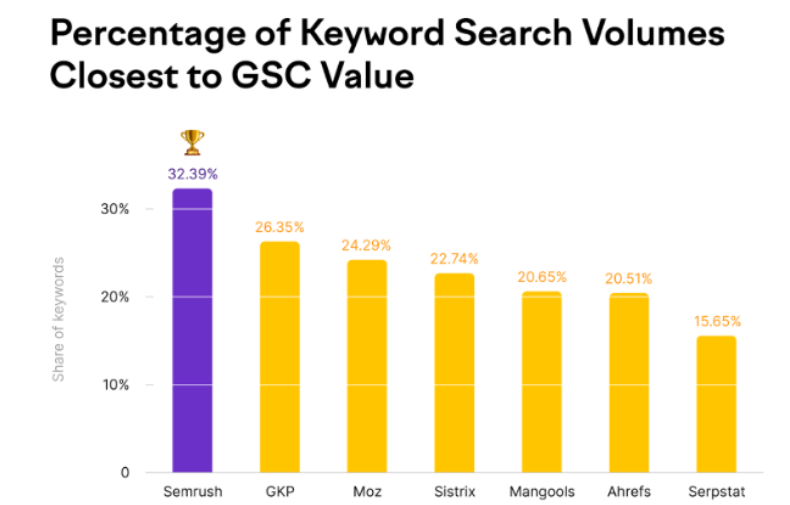
When it comes to accuracy, studies have shown that Semrush’s keyword data closely matches the search volumes reported by Google Ads. On average, Semrush’s estimates fall within 6% of Google Ads numbers based on a sample of over 300 keywords. This level of accuracy is quite impressive, considering the ever-changing nature of search behavior.
For example, if Google Ads reports a monthly search volume of 10,000 for a particular keyword, Semrush’s estimate might range between 9,400 and 10,600 searches per month. This slight variance is generally acceptable for most SEO planning purposes.
Semrush’s keyword difficulty scores, which range from 0 to 100, are calculated using a proprietary algorithm. While these scores generally align with manual assessments of competition, they can be less accurate for low-traffic, long-tail keywords. For instance, a niche keyword with only 10 monthly searches might have an inflated difficulty score due to limited data.
2. Site Audit
Semrush’s site audit tool is a powerhouse for identifying technical SEO issues, on-page optimization opportunities, and backlink profile analysis. But how reliable are its recommendations?
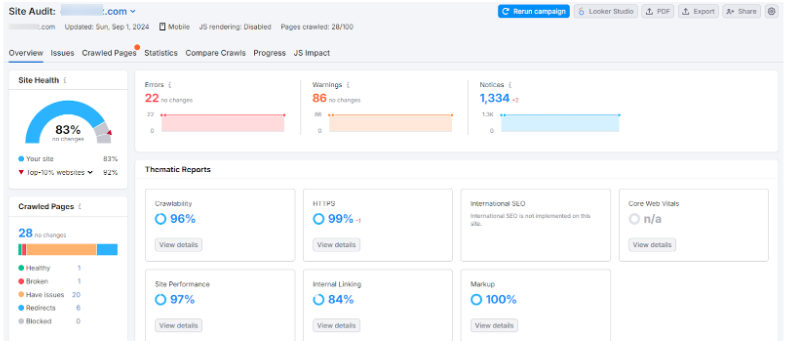
Studies have found that Semrush’s technical recommendations, such as fixes for crawl errors, redirects, and structured data, boast an impressive 90% accuracy rate. This means that 9 out of 10 issues flagged by Semrush are genuine problems that need addressing.
However, the tool isn’t perfect. Some issues, like duplicate meta descriptions, were incorrectly flagged over 50% of the time in certain studies. This highlights the importance of manually verifying Semrush’s findings, especially for critical on-page elements.
When it comes to backlink analysis, Semrush typically identifies between 75-85% of a site’s backlinks compared to other tools. While this coverage is good, it’s worth noting that the tool occasionally misses recently acquired links and may not always accurately judge the quality of backlinks (positive/negative) compared to manual checks.
3. Rank Tracking
Semrush’s rank-tracking feature allows users to monitor their website’s position for important keywords. However, due to search engine personalization and localization, rankings can vary significantly based on user location and behavior.
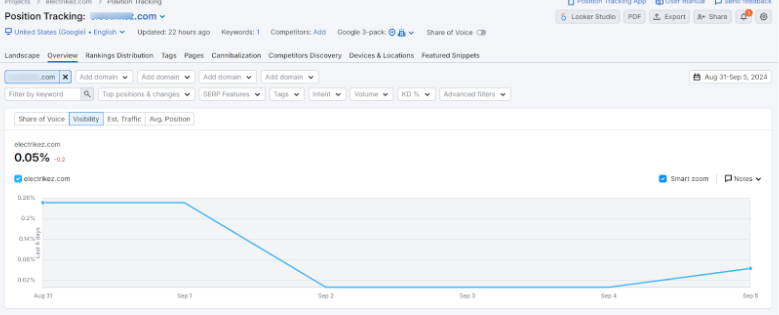
For national-level keywords, Semrush’s rankings are relatively accurate, usually matching within 1-2 positions of major competitors’ tools. This means if your site ranks 5th for a keyword according to Semrush, it’s likely to appear between the 3rd and 7th positions in most other rank trackers.
However, accuracy decreases for localized or personalized results. Some studies found that Semrush’s ranks differed from real Google ranks by 5 positions or more for 40% of keywords when compared side-by-side with localized accounts.
This discrepancy is significant and underscores the importance of using Semrush’s rank data as a general guideline rather than an exact measure, especially for geo-targeted keywords.
However, the traffic share data is pretty much accurate. And you can check any website’s traffic for free with Free Semrush Traffic Checker.
4. Competitive Research
Semrush offers extensive competitive intelligence options, from organic research to PPC ads and SEO content analysis. But how well does it stack up in accuracy?
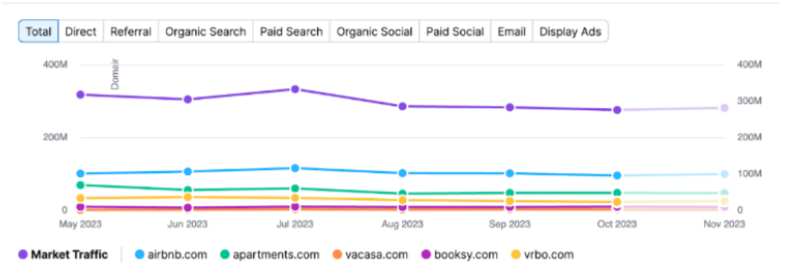
For organic keyword tracking, Semrush can identify 90% or more of a competitor’s ranking keywords. However, the rank positions should be considered directional rather than exact due to the limitations mentioned in the rank tracking section.
Paid keyword tracking tends to be more accurate, with around 80% match rates against Google Ads when sampled. This means if Semrush shows a competitor bidding on 100 keywords, about 80 of those are likely to be accurate.
Semrush excels at revealing a wide footprint of a competitor’s ads and landing pages. However, its ad copy database can sometimes mismatch headlines and body text due to aggregation from multiple sources. A manual review of full ads is still necessary for complete accuracy.
5. Advertising Research
Semrush’s advertising research tools provide insights into competitors’ ad strategies, including currently running ads and estimated ad spending. Studies have found that Semrush’s ad campaign identification accuracy is around 90%, which is quite impressive given the dynamic nature of online advertising.
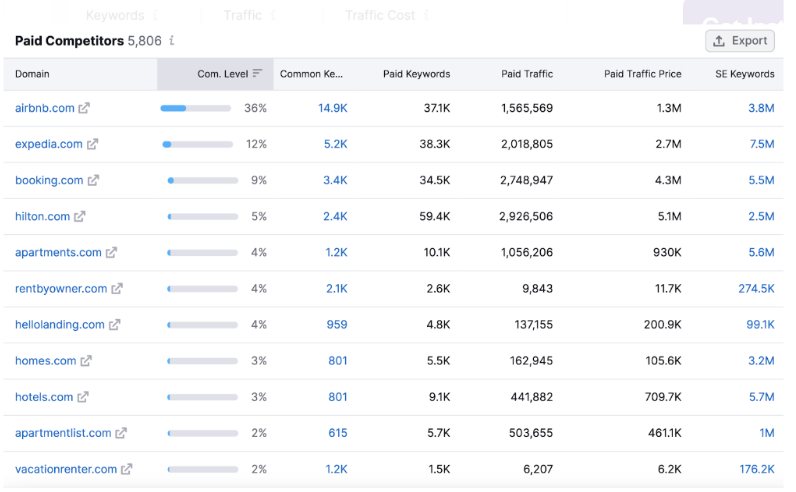
However, users should keep in mind that ad data is constantly changing, and some ads may not be visible at all times. This means that while Semrush can give you a good overview of a competitor’s advertising strategy, it may not capture every single ad in real-time.
6. Social Media Tool
Semrush’s social media tool allows users to track social media engagement and analyze competitors’ social media presence. While helpful for social media marketing, its accuracy has some limitations.
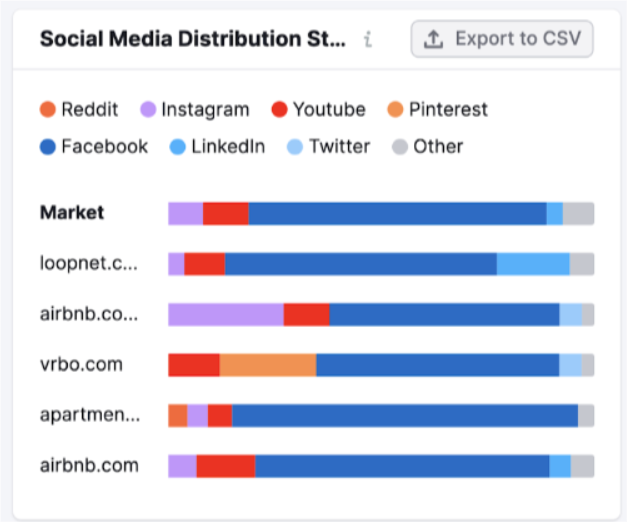
The tool’s social media analytics, such as follower count and engagement rate, are typically accurate. However, it doesn’t provide information on social media advertising, and its data on competitors’ social media activity may be incomplete.
For instance, Semrush might accurately report that a competitor has 10,000 followers on Twitter and an average engagement rate of 2%. However, it may miss data on the competitor’s Instagram ad campaigns or fail to capture all their LinkedIn post engagements.
If you want to test all these features and their accuracy, you can get started with our exclusive 14-day Semrush trial offer on Guru and Pro plans.
Semrush Accuracy Comparison With Top Alternatives
To better understand Semrush’s accuracy, let’s compare it with some top alternatives in key areas:
Keyword Research: Semrush vs Ahrefs
Semrush’s keyword database exceeds 25 billion keywords, while Ahrefs has over 19 billion. Both tools provide strong coverage of keyword volume, CPC, and competition data.
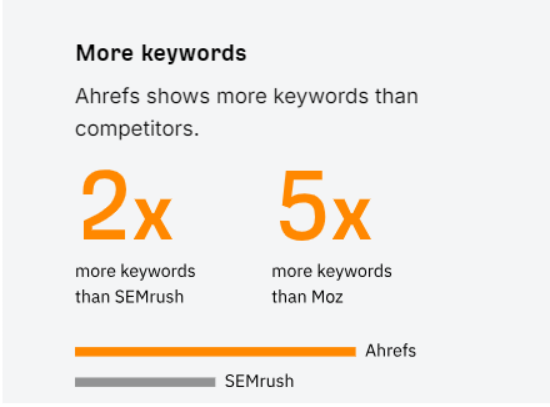
Ahrefs claims more accurate volume data by minimizing false positives. However, both tools are reasonably accurate when benchmarked against Google Ads. The main difference lies in their approach to keyword difficulty scoring. Semrush uses a 0-100 score, while Ahrefs provides difficulty percentages. Ahrefs’ scores tend to be more refined, but Semrush still offers decent difficulty approximations for most purposes.
Site Audit: Semrush vs Moz Pro
Semrush offers an extensive site audit checklist covering technical, on-page, backlinks, and security issues. Moz Pro, in comparison, focuses primarily on on-page factors and canonical issues.
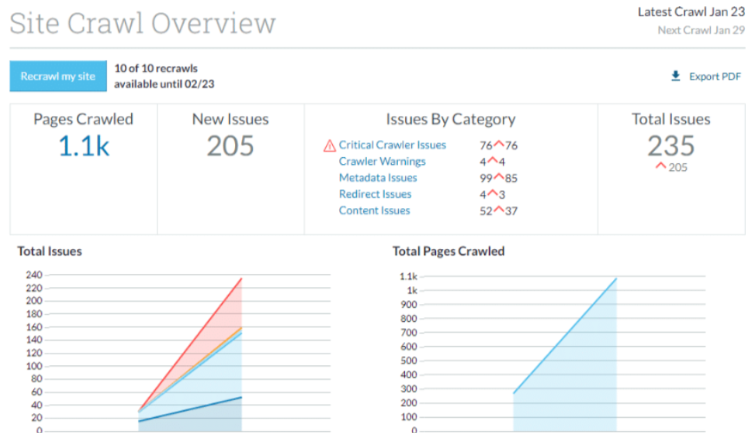
Both tools accurately identify the most objective technical problems and optimization opportunities. However, Moz Pro has a slight edge in link data, offering better judgments on link quality and spam. Semrush’s link analysis excels more at reporting link quantities.
The main difference lies in their reporting approach. Moz presents issues tagged to individual pages, while Semrush aggregates and scores across the entire site. This makes Semrush better for quick overviews, while Moz might be preferable for detailed page-by-page analysis.
Rank Tracking: Semrush vs SERPstat
Semrush tracks rankings for the top 10 results, while SERPstat can track up to position 100. Both tools track ranks across Google’s country-specific search results.
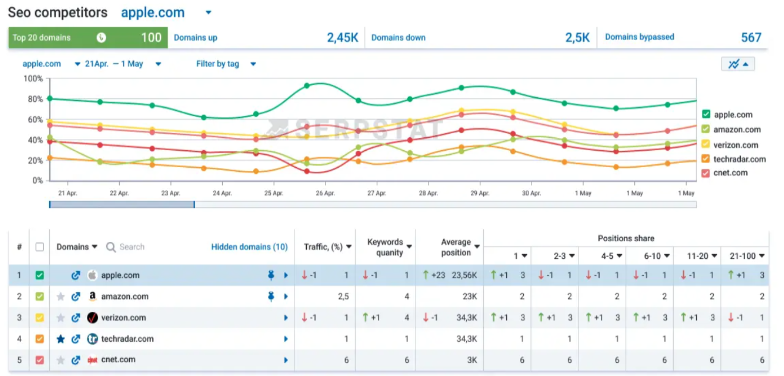
SERPstat claims to have more accurate ranks by tracking residential proxies in each location. In practice, SERPstat’s ranks are only slightly closer to manual checks. Semrush’s ranks tend to fluctuate more widely day-to-day, while SERPstat’s remain more stable, likely due to its larger data sampling.
For highly localized keywords, SERPstat might offer slightly more accurate results. However, for broad national tracking, the two tools perform nearly equally.
Final Verdict: Semrush Data Is Highly Accurate, With Minor Limitations In Local Data!
Overall, Semrush proves to be a highly accurate and reliable tool for most SEO and digital marketing tasks. Its keyword research capabilities, site audit recommendations, and competitive analysis features are particularly strong, often matching or exceeding the accuracy of its top competitors.
However, like any tool, Semrush has its limitations. Its rank tracking can be less accurate for localized searches, and some of its on-page optimization checks may produce false positives. The social media tool, while useful, lacks comprehensive coverage of all social platforms and advertising data.